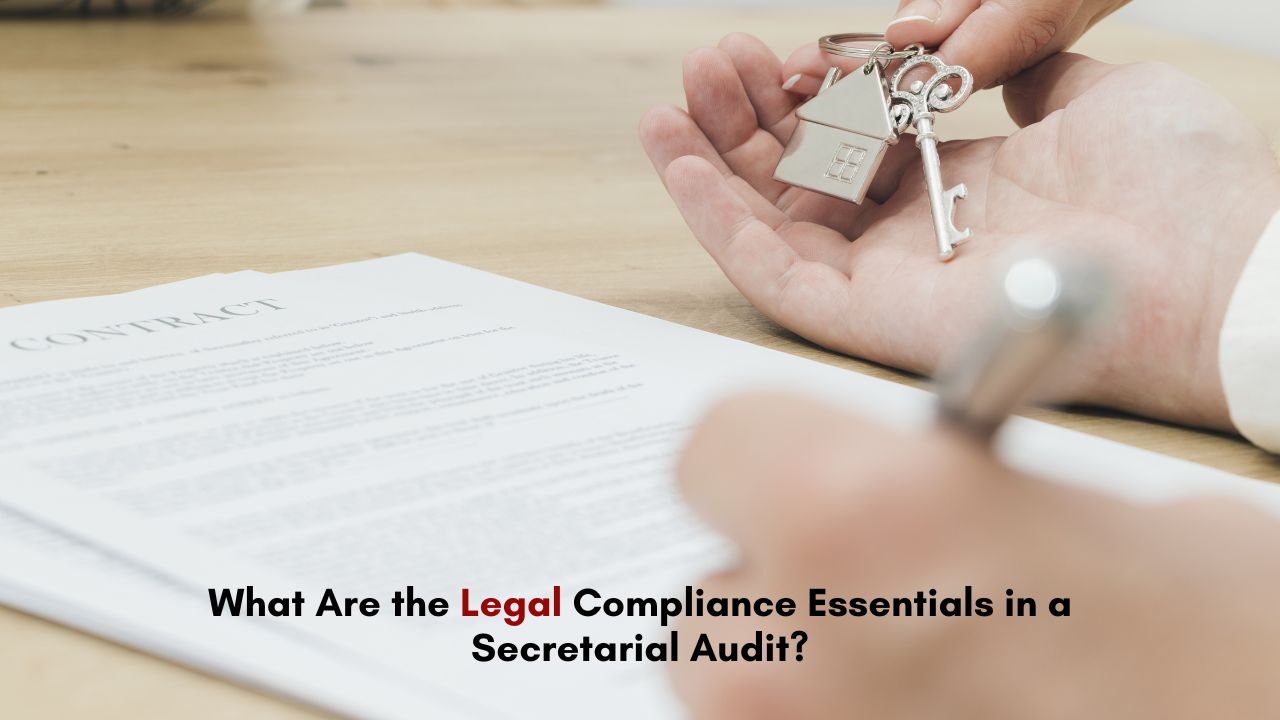
Introduction
A secretarial audit is a comprehensive check of an organization’s adherence to legal and regulatory requirements. It ensures that the company is complying with corporate governance standards, thereby mitigating risks and safeguarding stakeholders’ interests. Conducted by qualified professionals, this audit is not just about compliance but also about maintaining the integrity and transparency of corporate operations.
Importance of Secretarial Audit for Businesses
The secretarial audit plays a pivotal role in maintaining a company’s legal health. By identifying gaps in compliance, it helps businesses avoid legal penalties, reputational damage, and potential lawsuits. The benefits of secretarial audits extend beyond compliance, acting as a proactive measure to ensure the company operates within its legal framework.
By conducting this audit, companies can identify operational inefficiencies, streamline processes, and build investor confidence. It also facilitates better decision-making by providing accurate insights into legal and procedural adherence.
Key Legal Compliance Essentials in a Secretarial Audit
Understanding the critical areas of legal compliance in a secretarial audit is essential for achieving thoroughness and accuracy. Below are the main aspects businesses must address during the process.
Corporate Law Compliance
One of the primary focuses of a secretarial audit is compliance with corporate laws such as the Companies Act, 2013, and other applicable statutes. Auditors ensure the organization has adhered to filing requirements, board meeting protocols, and statutory records maintenance. Non-compliance in these areas can lead to significant legal and financial consequences.
Governance Framework Evaluation
The governance framework of a company reflects its commitment to transparency and accountability. Auditors evaluate the board structure, committee compositions, and adherence to ethical standards. This aspect is critical for identifying any governance lapses that may affect the company’s reputation or operational stability.
Due Diligence Procedures in Secretarial Audits
Due diligence is a crucial component of any secretarial audit. It involves examining the company’s records, contracts, and operational frameworks to uncover potential risks or inconsistencies. Effective due diligence procedures help identify areas of concern and recommend actionable solutions.
Auditors meticulously review the company’s compliance with securities laws, taxation regulations, and contractual obligations. They also examine the internal controls and risk management frameworks to ensure robust operational practices.
Benefits of Secretarial Audit in Risk Mitigation
The benefits of secretarial audit extend to risk mitigation by ensuring that businesses stay on the right side of the law. By identifying non-compliance and potential risks early, companies can take corrective actions proactively. This not only safeguards the organization but also strengthens stakeholder confidence.
Moreover, the audit provides a roadmap for improving internal processes, reducing the chances of recurring errors or violations. It can also assist in maintaining a company’s market credibility, as compliance is often a key consideration for investors and partners.
The Role of Outsourced and Virtual CFO Services in Secretarial Audit
As businesses grow, managing compliance requirements can become challenging. This is where virtual CFO services and outsourced CFO services play a significant role. These professionals bring expertise and an external perspective to compliance management, ensuring that businesses remain aligned with legal mandates.
Virtual CFO Services for Legal Compliance
Virtual CFO services provide organizations with access to experienced professionals without the need for a full-time hire. These services are particularly beneficial for small and medium enterprises (SMEs) that require expert guidance on compliance but may not have the resources to employ an in-house CFO.
By leveraging virtual CFO services, businesses can streamline compliance monitoring, financial reporting, and regulatory filings. These experts work closely with company leadership to ensure that all legal obligations are met effectively.
Outsourced CFO Services in Secretarial Audits
Outsourced CFO services offer comprehensive support for managing financial and compliance responsibilities. These professionals conduct detailed assessments of the company’s financial and operational frameworks, identifying any gaps or risks.
For secretarial audits, outsourced CFO services are instrumental in providing the financial data and insights necessary for auditors. Their expertise ensures that the company’s records are accurate, up-to-date, and aligned with legal requirements.
Challenges in Conducting Secretarial Audits
While the benefits of secretarial audits are numerous, conducting them can present challenges. Businesses often struggle with maintaining accurate records, interpreting complex legal requirements, and addressing compliance gaps effectively. These challenges can be overcome by adopting best practices and leveraging professional expertise.
Record Maintenance and Documentation
One of the most common challenges is ensuring that all statutory records and documents are maintained accurately. Inconsistent or incomplete records can lead to significant audit findings and penalties. Regular updates and systematic record-keeping practices can mitigate this issue.
Interpreting Legal Requirements
Understanding and interpreting the myriad of laws applicable to a company can be daunting. Legal ambiguities or frequent regulatory changes may confuse. Collaborating with compliance professionals and adopting due diligence procedures can help businesses navigate these complexities.
How to Enhance Compliance Through Secretarial Audits
To maximize the effectiveness of a secretarial audit, businesses must adopt a proactive approach to compliance. Regular training sessions for staff, periodic internal audits, and leveraging modern compliance management tools can significantly enhance adherence to legal requirements.
The Role of Technology in Compliance Management
Technological tools and software solutions have revolutionized compliance management, making it easier to track, monitor, and report adherence to legal standards. These tools help businesses stay updated on regulatory changes, reducing the chances of non-compliance.
Continuous Improvement Through Audits
Secretarial audits should not be viewed as one-time activities but as opportunities for continuous improvement. By addressing the findings of each audit and implementing recommended changes, businesses can build a strong foundation of compliance and governance.
Conclusion
Secretarial audits are indispensable for businesses aiming to establish robust legal and procedural compliance. By addressing key areas such as corporate law adherence, due diligence procedures, and governance frameworks, these audits not only mitigate risks but also enhance operational efficiency. Leveraging virtual CFO services and outsourced CFO services further strengthens a company’s ability to manage compliance effectively. With the right strategies and professional support, businesses can turn secretarial audits into a cornerstone of sustainable growth.






Leave a Reply